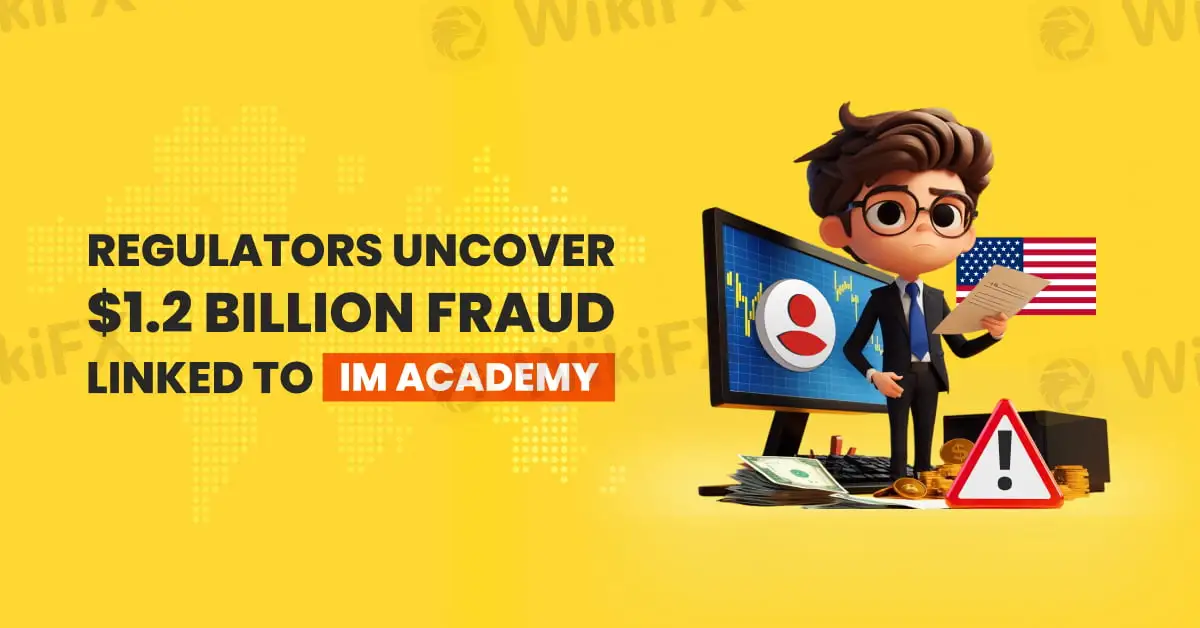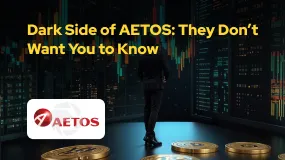简体中文
繁體中文
English
Pусский
日本語
ภาษาไทย
Tiếng Việt
Bahasa Indonesia
Español
हिन्दी
Filippiiniläinen
Français
Deutsch
Português
Türkçe
한국어
العربية
Regulators Uncover $1.2 Billion Fraud Linked to IM Academy
Abstract:A global investment training company operating under multiple brand identities has come under intense legal scrutiny after being accused of defrauding consumers of over $1 billion. The Federal Trade Commission (FTC) and the state of Nevada jointly filed a lawsuit on Thursday, alleging the company used deceptive tactics and exaggerated income claims to lure thousands of individuals into its schemes.

A global investment training company operating under multiple brand identities has come under intense legal scrutiny after being accused of defrauding consumers of over $1 billion. The Federal Trade Commission (FTC) and the state of Nevada jointly filed a lawsuit on Thursday, alleging the company used deceptive tactics and exaggerated income claims to lure thousands of individuals into its schemes.
The business, collectively known as IML, conducted operations under various names, including IYOVIA, IM Mastery Academy, iMarketsLive, and IM Academy. It promoted training in areas such as cryptocurrency, binary options, foreign exchange, and stock trading. Regulators claim that while IML promised substantial financial returns, internal data painted a far bleaker picture.

According to the complaint, IMLs marketing suggested that individuals could earn as much as $750,000 a month. However, the reality was starkly different. Only a small fraction, roughly 20%, of participants made more than $500 in sales commissions. For the majority, average annual earnings amounted to just $77.51 in 2022.
The FTC highlighted that the organisation primarily targeted young adults through social media campaigns, particularly those aimed at college students. Investigations revealed that many of IMLs so-called “educators” lacked formal financial qualifications, often relying on content from platforms such as YouTube or internally generated promotional materials. This raised concerns about the quality and legitimacy of the training provided.
Furthermore, data indicated that nearly 90% of customers ceased using IMLs services within six months of joining, which is a figure that regulators interpret as a strong signal of consumer dissatisfaction and potential financial harm.
The FTC contends that IML functioned as a multi-level marketing (MLM) operation. Members were encouraged to recruit new participants while selling access to the companys educational content. This recruitment-driven structure, according to the lawsuit, allowed the firm to amass approximately $1.2 billion from consumers since 2018 under misleading premises.
The company‘s founders, Christopher Terry and Isis Terry, are named in the lawsuit, along with leading promoters Jason Brown, Alex Morton, Matthew Rosa, and Brandon Boyd. They face charges of violating several federal laws, including the FTC Act, the Telemarketing Sales Rule, and the Restore Online Shoppers’ Confidence Act.
Regulators stressed the severity of the alleged misconduct. The FTCs Bureau of Consumer Protection emphasised the broad scale of the operation and the significant damage inflicted, particularly on younger consumers seeking financial independence. The agency underscored that unrealistic income projections and unsupported claims of financial expertise misled many individuals.

Disclaimer:
The views in this article only represent the author's personal views, and do not constitute investment advice on this platform. This platform does not guarantee the accuracy, completeness and timeliness of the information in the article, and will not be liable for any loss caused by the use of or reliance on the information in the article.
Read more

Dark Side of AETOS: They Don’t Want You to Know
AETOS is an Australia-based broker. All over the internet, you will find positive reviews about this broker, but no one is talking about the risks involved with AETOS. However, we have exposed the hidden risks associated with AETOS

Contemplating Investments in Quotex? Abandon Your Plan Before You Lose All Your Funds
Have you received calls from Quotex executives claiming to offer you returns of over 50% per month? Do you face both deposit and withdrawal issues at this company? Or have you faced a complete scam trading with this forex broker? You're not alone. Here is the exposure story.

15 Brokers FCA Says "Are Operating Illegally" Beware!
If a reputable regulator issues a warning about unlicensed brokers, it's important to take it seriously — whether you're a trader or an investor. Here is a list you can check out- be cautious and avoid getting involved with these scam brokers.

Scam Alert: Revealing Top Four Forex Scam Tactics Employed to Dupe Investors
Gaining and losing on forex trades is normal, but not scams that siphon out millions in no time! In this article, we will reveal forex scam tactics. Read on!
WikiFX Broker
Latest News
PrimeXBT Launches MT5 PRO Account for Active Traders
Renault shares plunge 16% after French carmaker lowers guidance, appoints new interim CEO
Darwinex Launches INDX: A Revolutionary Investment Strategy for Traders
Top Forex Trading Scams to Watch Out for in 2025
eToro Expands into Singapore with MAS CMS Licence
Real Risk Factors with Admiral Markets ! Explained
5 things to know before the stock market opens Wednesday
5 Reasons to Know Why INFINOX Is a Standout Broker?
Trump's big beautiful bill' caps student loans. Here's what it means for borrowers
Weekly mortgage demand plummets 10%, as rates and economic concerns rise
Currency Calculator


